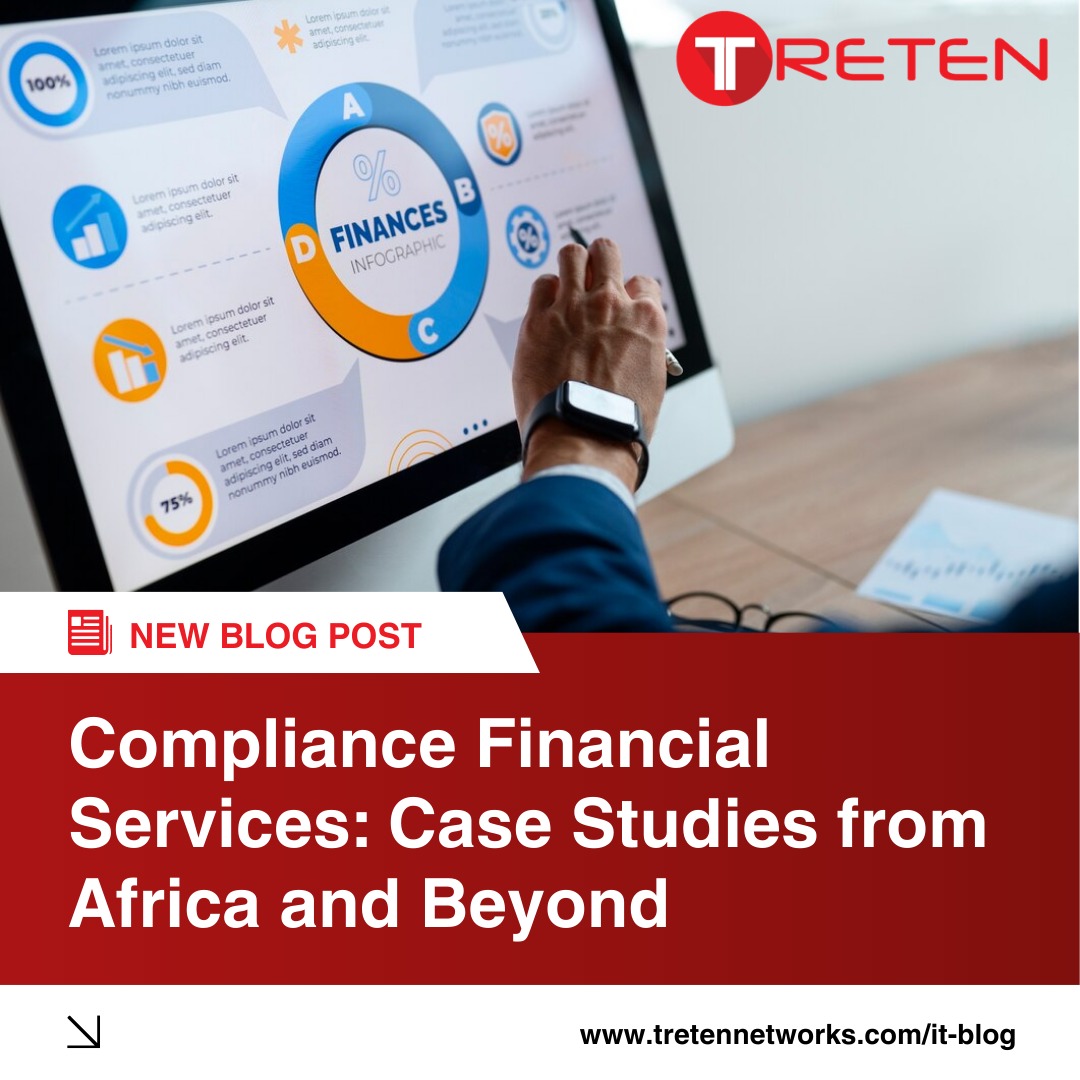In the rapidly evolving landscape of compliance financial services , ensuring adherence to regulations is more critical than ever. As the backbone of trust, transparency, and operational integrity, compliance plays a pivotal role in protecting consumers, maintaining market stability, and preventing fraudulent activities such as money laundering, insider trading, and terrorist financing. Financial institutions operating across diverse regions like Nigeria , Ivory Coast , Benin , Sudan , Rwanda , South Africa , and the UAE must prioritize compliance financial services as a core component of their business strategies. This blogpost delves into the significance of compliance in financial services, the challenges faced by organizations in these markets, and how innovative technology solutions are helping address these challenges effectively.
By embedding compliance financial services practices into their operations, institutions not only meet regulatory expectations but also build stronger relationships with clients, stakeholders, and regulators. Let’s explore how this essential framework supports long-term success in an increasingly complex global financial ecosystem.
Understanding Compliance in Financial Services
Compliance within the financial services sector involves adhering to laws, regulations, guidelines, and industry standards that govern financial activities. These regulations aim to protect consumers, maintain market stability, and prevent fraudulent activities such as money laundering, insider trading, and terrorist financing. Regulatory bodies like the Central Bank of Nigeria (CBN), the Autorité de Régulation du Secteur des Assurances et de la Réassurance (ARSA) in Ivory Coast , the Central Bank of Sudan, the National Bank of Rwanda, the South African Reserve Bank (SARB), and the UAE Central Bank play crucial roles in enforcing these rules.
Why is Compliance Important?
- Trust and Reputation : Compliance builds trust with clients, investors, and stakeholders. In countries like Nigeria and South Africa , where consumer protection is paramount, demonstrating adherence to regulations enhances an institution’s reputation.
- Risk Management : Effective compliance programs help identify, assess, and mitigate risks associated with non-compliance. This includes legal, operational, and reputational risks that could jeopardize the organization’s future, especially in emerging markets like Benin , Sudan , and Rwanda .
- Legal Protection : Staying compliant ensures that financial institutions avoid hefty fines, penalties, and lawsuits that can arise from violations of regulatory requirements. In regions like the UAE , where financial innovation is booming, compliance is essential for safeguarding businesses against legal pitfalls.
- Market Stability : By promoting fair practices and reducing systemic risks, compliance contributes to the overall stability of financial markets, benefiting both local and international players in countries like Ivory Coast and South Africa .
Challenges in Achieving Compliance
Despite its importance, achieving compliance in financial services presents several challenges, particularly in diverse markets like those in Nigeria , Benin , Sudan , Rwanda , South Africa , and the UAE :
- Complex Regulatory Environment : Each country has its own set of regulations, which are constantly evolving. For instance, Nigeria ‘s anti-money laundering laws differ significantly from those in the UAE , making it challenging for multinational firms to keep up with these changes.
- Regional Differences : Operating across multiple jurisdictions adds another layer of complexity. For example, a bank operating in both Ivory Coast and Rwanda must comply with different regulations in each country, requiring tailored compliance strategies.
- Technological Advancements : The rise of fintech and digital banking has brought about new risks and opportunities. Ensuring compliance in this fast-paced environment demands innovative solutions and robust cybersecurity measures, especially in tech-savvy markets like South Africa and the UAE .
- Data Privacy Concerns : With increasing emphasis on data protection laws, such as GDPR-inspired regulations in South Africa and the UAE , financial institutions must ensure they handle customer information securely while meeting reporting obligations.
Case Studies: Solving Real-World Problems with Technology
Here are examples of how financial institutions in Africa and beyond have leveraged specific technology solutions to address compliance challenges:
1. Enhancing Network Security with Cisco Advanced Malware Protection (AMP)
A leading bank in South Africa faced challenges in securing its expanding network infrastructure due to increased cyber threats. By deploying Cisco Advanced Malware Protection (AMP) , the bank was able to implement advanced threat detection and response mechanisms, ensuring compliance with local data protection laws.
2. Optimizing Application Delivery with F5 BIG-IP
An insurance provider in Nigeria struggled with slow application performance, impacting customer satisfaction and compliance with service-level agreements (SLAs). Using F5 BIG-IP , the company optimized application delivery, improving performance and ensuring timely access to critical systems.
3. Automating Network Troubleshooting with Netbrain Enterprise Automation Platform
A financial institution in Rwanda needed a way to quickly diagnose and resolve network issues to meet stringent uptime requirements. Netbrain Enterprise Automation Platform provided an automated platform for network troubleshooting, enabling faster resolution times and enhanced compliance.
4. Managing DNS and IP Addressing with Infoblox DDI Solution
A large bank in Ivory Coast faced difficulties managing its DNS and IP addressing systems, which were critical for regulatory reporting. Infoblox DDI Solution offered a centralized solution that streamlined DNS management, ensuring compliance with regional regulations.
5. Strengthening Cybersecurity with Palo Alto Networks Next-Generation Firewalls
A fintech startup in the UAE required robust cybersecurity measures to protect sensitive customer data. Palo Alto Networks Next-Generation Firewalls delivered advanced security features, helping the company achieve compliance with global standards.
6. Securing Cloud Environments with Zadara VPSA Storage Controller
A payment gateway provider in Kenya sought to secure its cloud infrastructure while complying with regional data sovereignty laws. Zadara VPSA Storage Controller provided enterprise-grade storage and security solutions, ensuring compliance without compromising performance.
7. Detecting Threats with Skybox Vulnerability Management
A retail bank in Benin needed better visibility into its network vulnerabilities to meet regulatory requirements. Skybox Vulnerability Management provided comprehensive threat modeling and vulnerability assessment capabilities, enabling proactive risk management.
8. Protecting Against Advanced Threats with Fortinet FortiGate
A microfinance institution in Sudan faced challenges in detecting and mitigating advanced persistent threats (APTs). Fortinet FortiGate delivered integrated security solutions that strengthened the institution’s defenses and ensured compliance with international standards.
9. Monitoring Network Performance with Netscout nGeniusONE
A telecom operator in Ghana required real-time monitoring of its network performance to comply with SLAs. Netscout nGeniusONE provided advanced analytics and monitoring tools, enabling the operator to maintain high levels of service quality.
10. Ensuring Data Center Compliance with Africa Data Centres Secure Colocation Services
A multinational bank operating in South Africa needed a reliable data center partner to ensure compliance with local regulations. Africa Data Centres Secure Colocation Services provided secure, scalable infrastructure that met all compliance requirements.
11. Implementing Zero Trust Architecture with Checkpoint Harmony Connect
A financial services firm in the UAE implemented a zero-trust architecture using Checkpoint Harmony Connect , enhancing security and complying with stringent regulatory mandates.
In today’s highly regulated Compliance Financial Services environment, compliance is more than just a checkbox exercise—it’s a strategic imperative. By understanding the importance of compliance, addressing the challenges head-on, and leveraging specific technology solutions from vendors like Cisco Networking , F5 , Juniper Networks , Netbrain , Infoblox , Cellusys , Sandsiv+ , Zadara , Sophos , Skybox , Palo Alto Networks , Fortinet , Netskope , Sandvine , Netscout , Zscaler , Claroty , Checkpoint , Africa Data Centres , Huawei , AWS , TelSpace , and CyberKnight , financial institutions can not only meet regulatory expectations but also build stronger, more resilient businesses.
Ultimately, a commitment to compliance fosters trust, drives innovation, and ensures long-term success in an increasingly competitive marketplace. Whether you’re operating in Nigeria , South Africa , or the UAE , prioritizing compliance will pave the way for sustainable growth and success. For free consulting on compliance in financial services, check out www.tretennetworks.com/get-a-quote .


